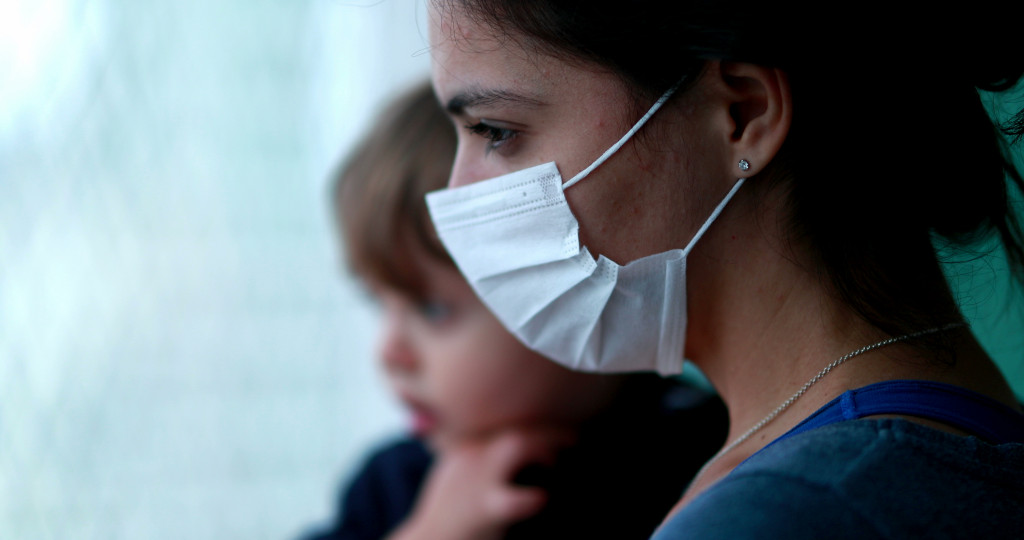While it’s a little less terrible now, we shouldn’t forget the pandemic is still going on. Meaning, you still might want to continue wearing your masks. If you’ve stopped, consider wearing them again. Face masks are an essential part of protection from viruses that you may catch when interacting with other people, and yet, that doesn’t mean they’re easier to wear.

Inconveniences of wearing a face mask
When wearing a mask, depending on the kind, a person can sometimes experience uncomfortable breathing, which makes it hard for them, especially during exercise and when you’ve worn it all day or even in only a couple of hours. If you’re looking for an alternative, there’s no better material for a face mask than cloth since it has the ability to protect you from viruses and stop the spread of the virus it’s caught.
Having a tight mask on your face can make you feel anxious. As you breathe rapidly, your heart beats faster as well. Therefore, causing you to experience difficulty breathing.
The best way to avoid this problem is to be aware of your breathing and take breaths at a slower rate. If you’re walking, reduce your pace and stay aware of your breathing. Remember that you are not in danger and there is still going to be oxygen even when you wear a mask. Take slow, deep breaths. Once you’re used to it, you will not have this problem anymore.
Another disadvantage of wearing a face mask all the time is that it can irritate your skin, especially if you’re wearing makeup. Your masks trap oils, sweat, dirt, and allergens against your skin, which causes rashes and breakouts no matter your skin type. It can be harsher on some, but there is one thing you can do to avoid this inconvenience.
Wash your masks regularly, depending on how often you use them. Wash your face regularly as well and try to look into facial washes that contain salicylic acid to help unclog your pores and lessen your chances to form blackheads, whiteheads, and pimples.
How irritation behind the ears happen
When you wear masks for long periods of time, moisture and friction can irritate your skin, especially if you have sensitive type skin. Irritation can appear in different forms, such as breakouts, bruising, raw skin, and rashes.
As for the back of your ears, the straps of your mask can rub on your skin, open wounds, and result in blistering, inflammation, and/or infection if not taken care of immediately and properly. It’s not like you’re going to need microsuction ear wax removal services, but if you’ve neglected taking care of your ears, you might have to.
How to avoid skin irritation
Considering that the skin at the back of your ears isn’t wounded, applying moisturizer twice daily can help reduce the chances of blistering or irritation.
Ensure you’re wearing a mask that fits right on your face so you can prevent tightness and too much friction against your skin. Double-masking can also help either by layering a reusable, washable mask layered with a disposable one beneath it, or just by putting on two masks to make it fit better.
Washing your reusable masks as often as you wear them helps prevent the cause of acne, rashes, irritation, and infection on your skin. If you use disposable masks, toss them into the garbage after one to two uses.
When washing your masks, you can include them in any load of laundry you have for the day. Using a regular detergent is perfectly fine to clean it. Masks with metal nose pieces or delicate ear straps are best to be washed by hand with either ordinary detergent or anti-bacterial soap. To dry them, you can let them sit under direct sunlight or put them into the dryer in a warm setting.
Be sure to choose comfortable ear straps. You don’t want them too tight or too loose. If the ear loops are too tight, this is when you can experience skin irritation behind your ears. If they are too loose, however, that means you got less comfort and protection.
You want to opt for masks with adjustable ear straps or the kinds that you can tie around your head so you can control its tightness. Not only will these options provide comfort, but they also make a more protective seal to your face.
Not only your masks are bothersome to the skin on your face, but to the back of your ears as well. The straps of your masks are most probably causing friction against your skin. Where there is friction, there can be irritation. Therefore, there can be inflammation if not taken care of immediately.

